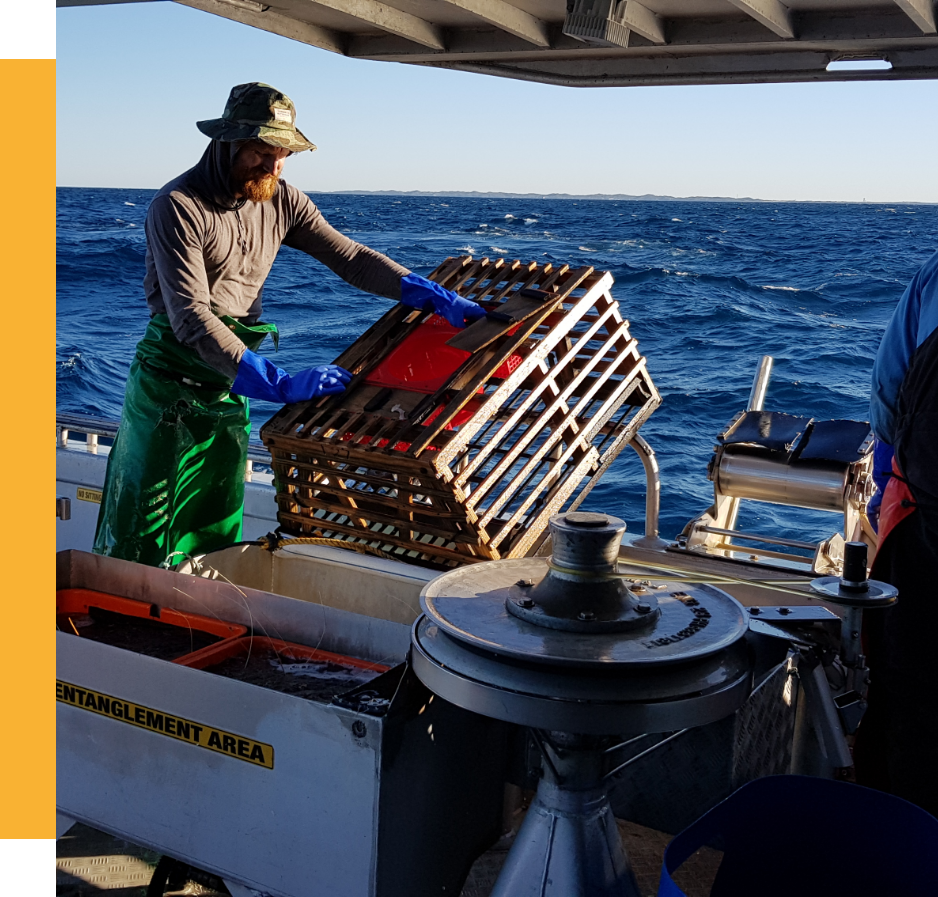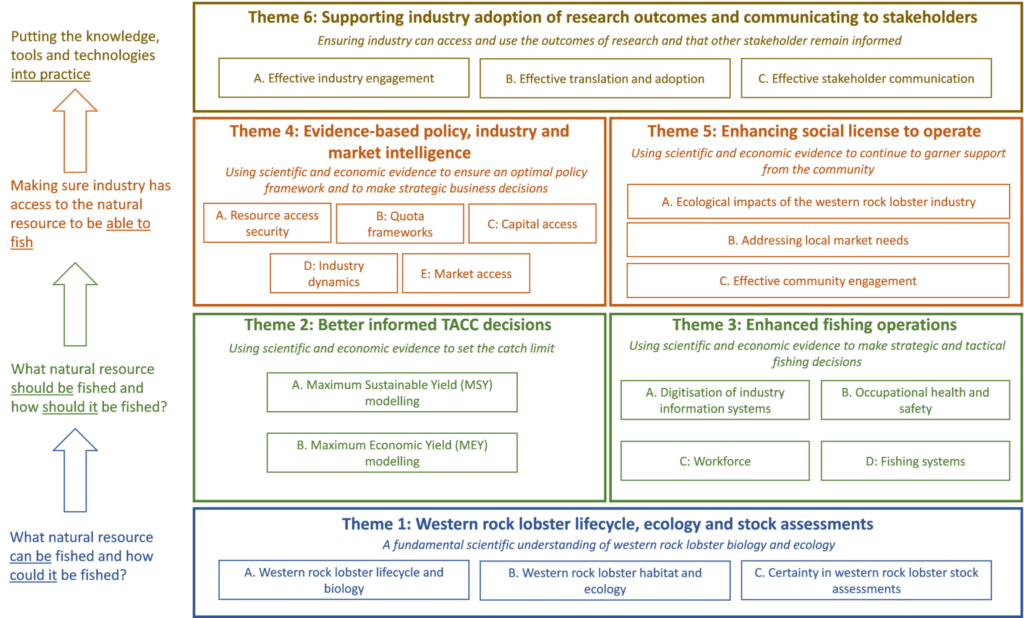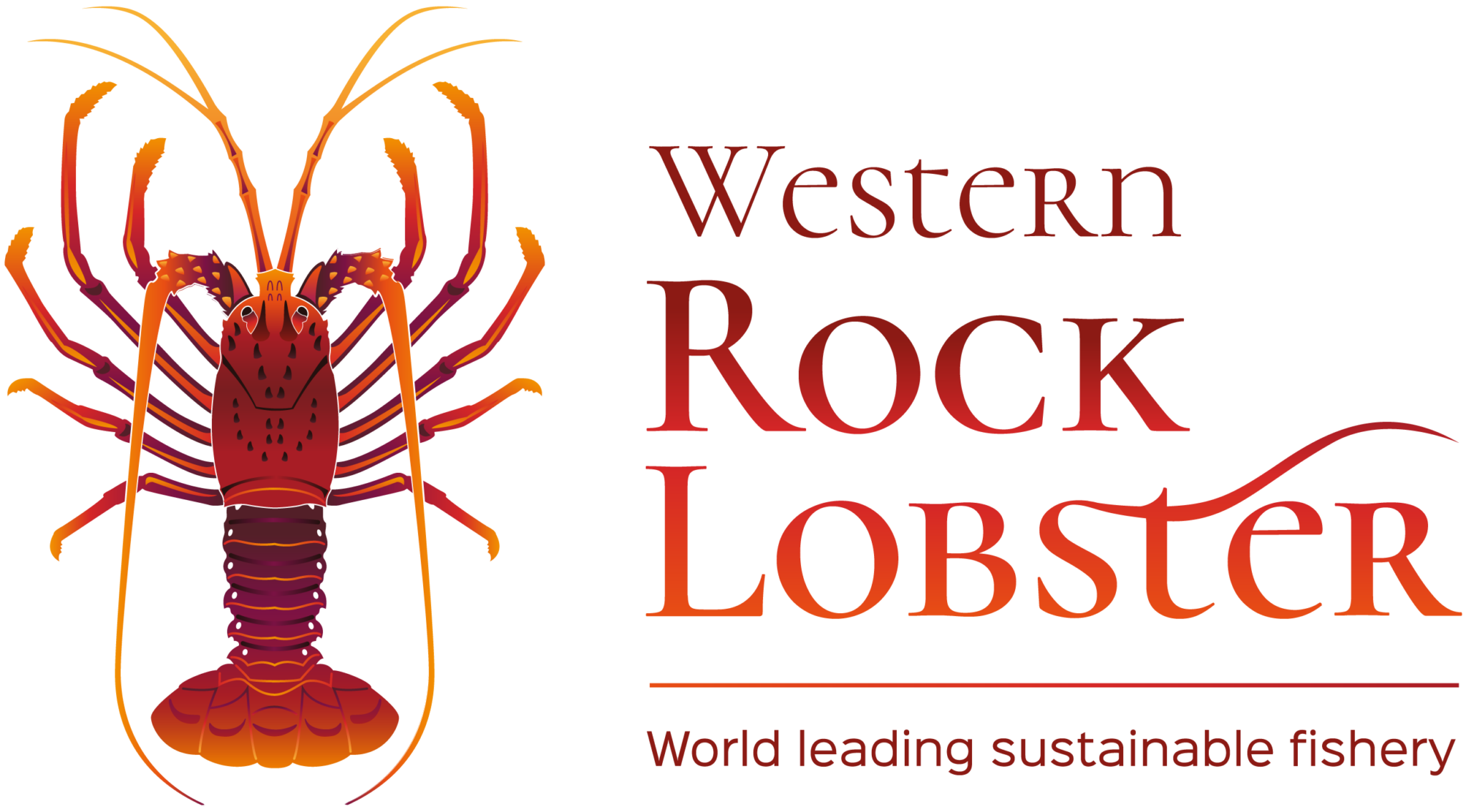The WRL Research, Development and Extension (RD&E) Plan supports the implementation of the WRL Strategic Plan and helps mitigate the risks identified through the board’s risk management processes.
Efficient investment in research and development generates new knowledge and technology that can be used by industry to inform and implement resource management, strategic investment and operational decisions which are vital to the sustainability, competitiveness, and profitability of the western rock lobster industry.
The RD&E Plan ensures that the industry continues to be optimally positioned to:
- Understand and respond to the ever-changing ecosystem that supports the western rock lobster fishery, as well as its cumulative impacts on that ecosystem.
- Determine with certainty, sustainable and economically optimal levels of harvest of the natural resource.
- Improve the productivity and safety and therefore, competitiveness and profitability of the fishing effort and downstream processes.
- Ensuring strong, evidence-based cases can be made to government and communities that underpin resource access security for the industry.
- Understand and be able to respond to changes in market and industry conditions.

Rigorous priority setting and governance of the research effort
The priorities set out in this RD&E Plan were determined through an extensive research priorities planning process which included direct consultation with fishers, processors, researchers, research funders, regulators and other stakeholders and experts, and refined by a comprehensive literature review, validated across the entire WRL membership, and finally endorsed by the Board of WRL.
Like all effective research strategies, the WRL RD&E Plan is an open and adaptive strategy ensuring research and development can pivot to address industry challenges as they arise. It will be routinely reviewed in accordance with the terms of reference for the governance structure and be put to Members and the WRL IPA Committee for input. The WRL Board will have the ability to change priorities in the case of unforeseen urgent needs.
The Western Rock Lobster research priorities framework
The WRL research priorities are organised according to a thematic framework that logically addresses the key issues of what can be fished, what should be fished and how it should be fished, making sure industry continues to have access to the natural resource to be able to fish, and putting into practice the knowledge, tools and technologies that enable this.

